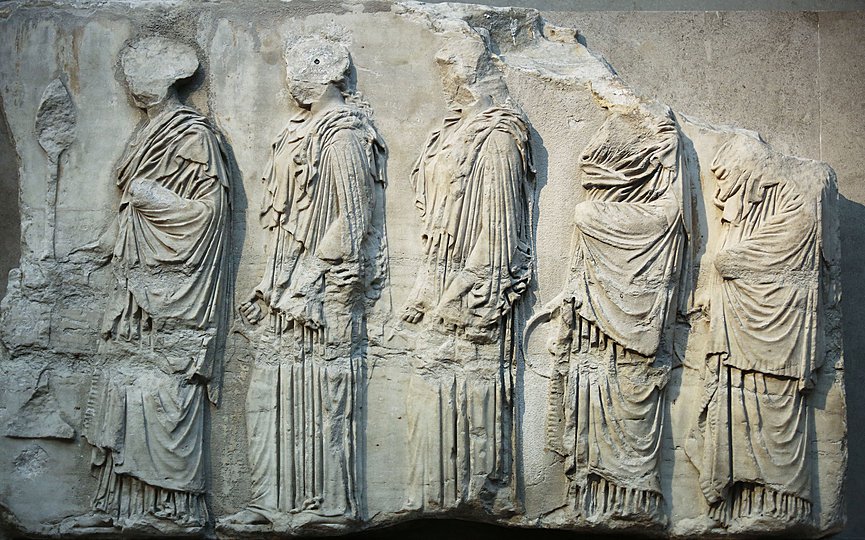General News
Meropi Kyriacou Honored as TNH Educator of the Year
NEW YORK – Meropi Kyriacou, the new Principal of The Cathedral School in Manhattan, was honored as The National Herald’s Educator of the Year.

The recent editorial in the Times of London, in which the paper declares that it now supports the return of the Parthenon Marbles to Greece, is an important step towards their not-so-distant return.
The reasoning behind the new position is like a bolt of lightning:
“…times and circumstances change. The sculptures belong in Athens. They should now return.”
End of story. This is the essence of the matter, as I have had the opportunity to argue in a recent commentary.
Indeed, Lord Elgin’s time, an epoch of state-sponsored larceny, is completely different from today. Neither the Ottoman nor the British empires exist any longer. But there is a free Greek state.
And as The Times rightly observes, the case for returning the Parthenon Marbles to Greece has become “compelling.”
In the past, the argument on which the retention of the Marbles by the British Museum in London was founded on was the point that Greece did not have the appropriate space to house them.
However, The Times now writes that, “this argument no longer holds. Not only have the Elgin Marbles already been damaged by inappropriate cleaning but Greece has built a magnificent museum next to the Acropolis, safe and accessible, where the original sculptures are now kept, and where the marbles would complete the frieze.”
After The Times referred to the recent agreement with a museum in Italy – “In exchange for the return of the sculptures, Greece would send London a rotating exhibition of some of its finest classical artefacts not on permanent display” – it offered an interesting proposal.
The Times, said: “Let the sculptures be sold back at cost price. An act of parliament awarded Lord Elgin’s purchases to the museum. Let parliament therefore sanction their return.”
The newspaper overlooks the fact that the essence of the issue is not the price of the Marbles and their sale – it’s a matter of ownership: Elgin stole the Marbles from Greece. Indeed, logically, Greece should be compensated. This theft cost her, firstly, the absence of a national treasure, a national sense of humiliation. Secondly, it cost Greece the revenue she was deprived of from ticket sales to the millions of people who would have visited Greece to admire them during the 200 years since she achieved independence from the Ottomans.
So, it is the British Parliament which must pay Greece and not the other way around. However, let’s study the Times’ proposal realistically. Let us not rush to reject it completely.
NEW YORK – Meropi Kyriacou, the new Principal of The Cathedral School in Manhattan, was honored as The National Herald’s Educator of the Year.

MELBOURNE, Australia (AP) — More than 100 long-finned pilot whales that beached on the western Australian coast Thursday have returned to sea, while 29 died on the shore, officials said.
On Monday, April 22, 2024, history was being written in a Manhattan courtroom.
PARIS - With heavy security set for the 2024 Paris Olympic Games during a time of terrorism, France has asked to use a Greek air defense system as well although talks are said to have been going on for months.
PARIS (AP) — Paris has a new king of the crusty baguette.
WASHINGTON (AP) — A tiny Philip Morris product called Zyn has been making big headlines, sparking debate about whether new nicotine-based alternatives intended for adults may be catching on with underage teens and adolescents.